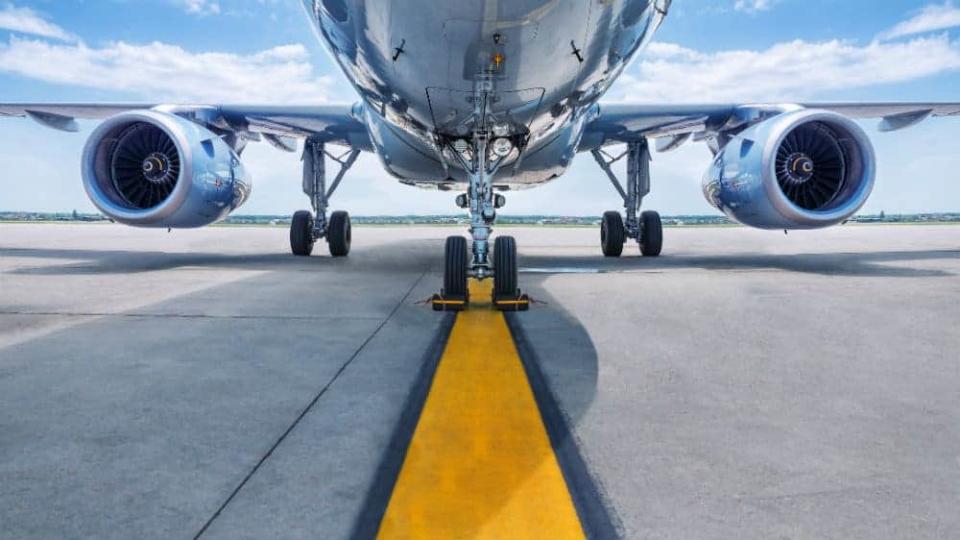Consider What These 3 Shocking Airline Announcements Mean

The Canadian airline industry received three shocking updates in the past few weeks that are sure to have investors questioning whether an investment in the sector is still a feasible approach. At the forefront of those recent updates is Air Canada (TSX:AC)(TSX:AC.B), Canada’s largest airline, which also happens to be one of the best-performing stocks in the market over the past decade, with impressive gains in excess of 300% in the past five-year period.
So, what exactly shocked the airline sector?
First, there are the ongoing 737 MAX problems. Following two separate crashes, MAX fleets around the world were grounded while a fix for the issue that caused those crashes was implemented and rolled out to airlines around the world. To be clear, this isn’t just an Air Canada issue but rather an issue that continues to impact every airliner on the planet that purchased those 737 models.
In terms of an impact, Air Canada only has 24 of the new MAX aircraft, which works out to about 6% of the total fleet. Despite that relatively small size, the aircraft were situated on a variety of routes across North America, the Caribbean, Hawaii, and even on routes to the U.K. from Atlantic Canada, working out to about 75 flights per day, hauling up to 12,000 passengers.
With the 737 MAX globally grounded, Air Canada was forced to shuffle schedules around and, in many cases, use older, less-efficient aircraft on those routes, which will likely make its way to the next earnings report in the form of increased costs. Air Canada has since suspended its financial guidance because of the grounding.
Adding to those woes is the fact that IATA, the primary trade body for the airline industry, announced today that the 737 MAX is unlikely to return to flight until August at the earliest.
Next, we come to the surprise announcement that Air Canada’s primary competitor, WestJet Airlines (TSX:WJA) will be taken private following a $5 billion deal announced this month. While the direction WestJet will take under its new ownership remains to be seen, the announcement will leave Air Canada as one of the only options for airline-seeking Canadian investors, which leads me to the next point.
One of those other options was Transat AT (TSX:TRZ), the Montreal-based airline that offers both scheduled and charter flights to over 20 countries around the world, which is, coincidentally, the third-largest airline in Canada after Air Canada and WestJet. The reason I say was is because Air Canada announced its own $520 million bid to take over Transat this month. Investors of Air Canada should be salivating over the deal, as it will almost certainly lead to less competition, higher fees, and a larger selection of routes for travelers, not to mention the potential synergies from the deal.
That’s assuming the deal goes through, as announcements that impact the top three airlines in the country is sure to attract the ire of the competition bureau, and what that consolidation means for consumers.
Should you buy?
With the exception of the ongoing problems with the 737-MAX fleet, Air Canada is set to benefit from all of these recent announcements, which should excite investors. Additionally, Air Canada’s first-quarter results announced earlier this month provided the company with several points to boast on to investors, including record-breaking operating revenue of $4.453 billion and well as $6.877 billion in liquidity.
In my opinion, Air Canada remains an excellent long-term pick for investors looking for an airline stock.
More reading
TFSA Investors: How to Turn Your $6,000 Contribution Into $50,000 or More
Lazy Landlords: The Easy Way to Create Your Own Passive-Income Empire
Fool contributor Demetris Afxentiou has no position in any of the stocks mentioned.
The Motley Fool’s purpose is to help the world invest, better. Click here now for your free subscription to Take Stock, The Motley Fool Canada’s free investing newsletter. Packed with stock ideas and investing advice, it is essential reading for anyone looking to build and grow their wealth in the years ahead. Motley Fool Canada 2019

 Yahoo Finance
Yahoo Finance 